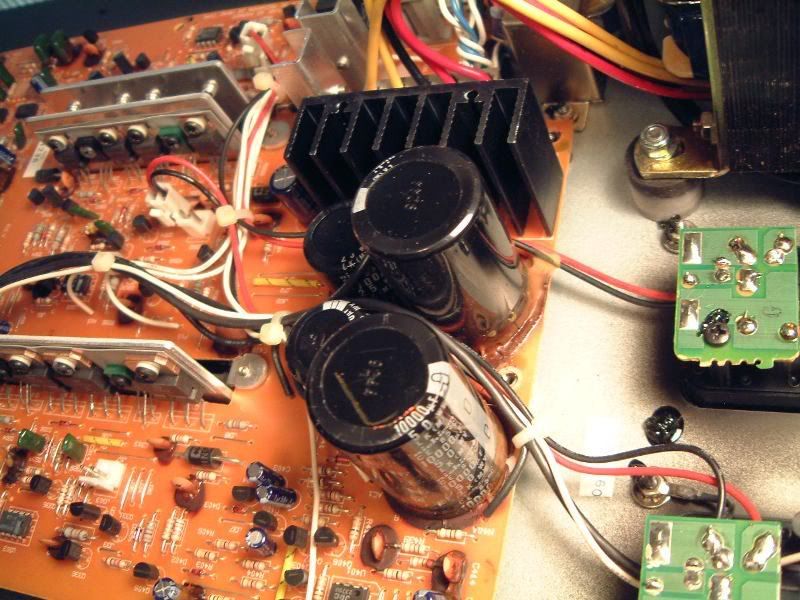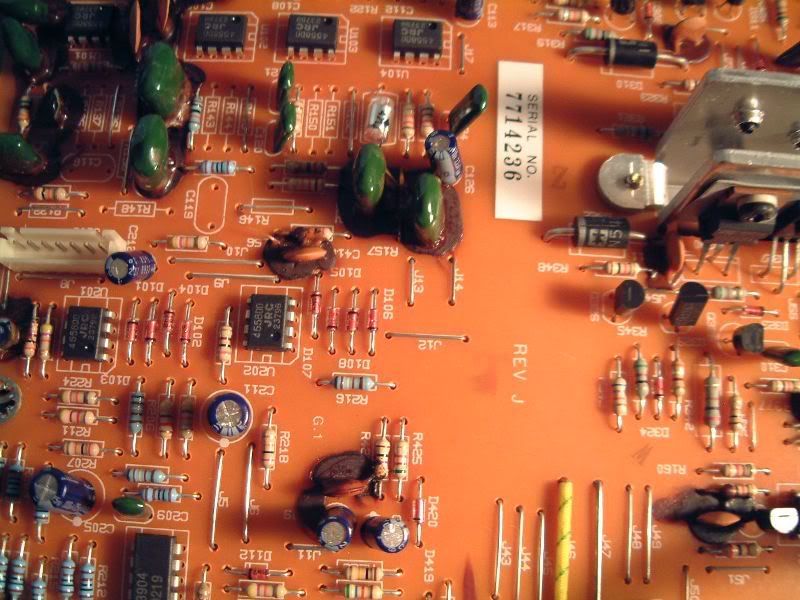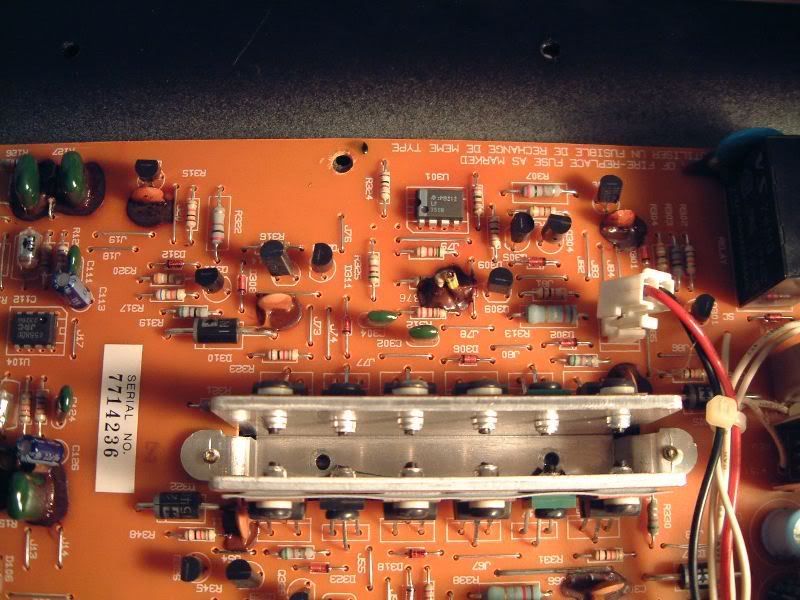 This is a Bose powered sub woofer from 1992. I took some readings at the output section, a few transistors measured 38v some had no readings at all. I couldn't get through the whole lot of 18 output transistors when I heard it click into overload. At this time I've got 14v +- on some of the output transistors. The substance around some of the components look like dried globs of pudding. Could this thing have been zapped by a surge like lightening?
This is a Bose powered sub woofer from 1992. I took some readings at the output section, a few transistors measured 38v some had no readings at all. I couldn't get through the whole lot of 18 output transistors when I heard it click into overload. At this time I've got 14v +- on some of the output transistors. The substance around some of the components look like dried globs of pudding. Could this thing have been zapped by a surge like lightening?
Thanks,
Gary
BTW no sound is coming from any of the satellite speakers that are connected to this unit as well.
When I took the back off the sub, someone had undone all he molex connections. A previous tech may have pronounced it DOA.


Comment